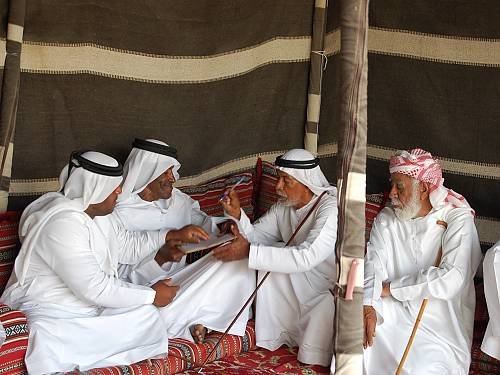Al Taghrooda poetry is a treasured form of cultural storytelling in the United Arab Emirates (UAE). Passed down through generations, it reflects the values, traditions, and experiences of the Emirati people. Through rhythmic verses and heartfelt words, Al Taghrooda remains a living tradition that continues to connect communities and celebrate the nation’s heritage.
What is Al Taghrooda Poetry?

Al Taghrooda is a traditional form of Bedouin poetry, primarily performed by men. It is often sung in a call-and-response style, with one poet reciting verses while others respond in harmony. Historically, it was performed during desert journeys to pass the time and strengthen the bond between travelers. Today, it is a cherished part of cultural events, festivals, and national celebrations.
The verses are usually composed spontaneously, making each performance unique. Poets often address themes like love, loyalty, bravery, and the beauty of the desert landscape. The simplicity of the language used in Al Taghrooda makes it accessible to all, allowing people from different backgrounds to enjoy and participate.

The Role of Al Taghrooda in Emirati Culture
Al Taghrooda holds a special place in the hearts of Emiratis. It is not just a form of entertainment but a reflection of the collective experiences of the community. By sharing stories through poetry, Bedouins preserved their history, values, and wisdom.
This oral tradition also played a role in resolving conflicts and celebrating important occasions. Poets used their verses to offer advice, express gratitude, or convey messages of peace. In this way, Al Taghrooda served as a means of communication and social bonding.

The Art of Performing Al Taghrooda

Performing Al Taghrooda requires both skill and creativity. The lead poet, known as the “mutrib,” initiates the performance with a verse that sets the tone. The chorus then responds, adding rhythm and depth to the recital. The exchange continues, creating a captivating dialogue that draws listeners into the story.
Musical instruments such as drums or tambourines often accompany the performance, enhancing the experience. At traditional gatherings like weddings and cultural festivals, Al Taghrooda performances are a highlight, bringing joy and unity to the event.
Preservation and Recognition
Recognizing its cultural significance, UNESCO inscribed Al Taghrooda on its Representative List of the Intangible Cultural Heritage of Humanity in 2012. This acknowledgment has encouraged efforts to preserve and promote the tradition.
Cultural institutions in the UAE, such as the Abu Dhabi Department of Culture and Tourism, organize workshops, performances, and educational programs to introduce younger generations to Al Taghrooda. Schools also incorporate poetry lessons into their curriculum, ensuring the legacy of Al Taghrooda lives on.
Al Taghrooda in Modern Times
While Al Taghrooda remains rooted in tradition, it has also evolved to resonate with contemporary audiences. Poets now compose verses on modern topics, addressing social issues, national pride, and personal experiences. Social media platforms have further amplified the reach of Al Taghrooda, allowing poets to share their art with the world.
Moreover, cultural festivals like the Sheikh Zayed Heritage Festival and Al Dhafra Festival feature Al Taghrooda performances, drawing both locals and tourists. These events provide a platform for poets to showcase their talent and inspire the next generation of storytellers.
Why Al Taghrooda Matters
Al Taghrooda serves as a reminder of the resilience, creativity, and unity of the Emirati people. It bridges the past and present, fostering a deeper appreciation for the nation’s cultural heritage. For visitors to the UAE, experiencing a live Al Taghrooda performance offers an authentic glimpse into the country’s soul.
By supporting and celebrating Al Taghrooda, the UAE continues to honor its ancestors and nurture its rich cultural identity. Whether performed in a desert camp, a bustling festival, or through a digital platform, the voice of Al Taghrooda remains strong, echoing the timeless stories of the land and its people.
Also read: Dining Like a Local: Essential Tips on Emirati Hospitality and Etiquette














